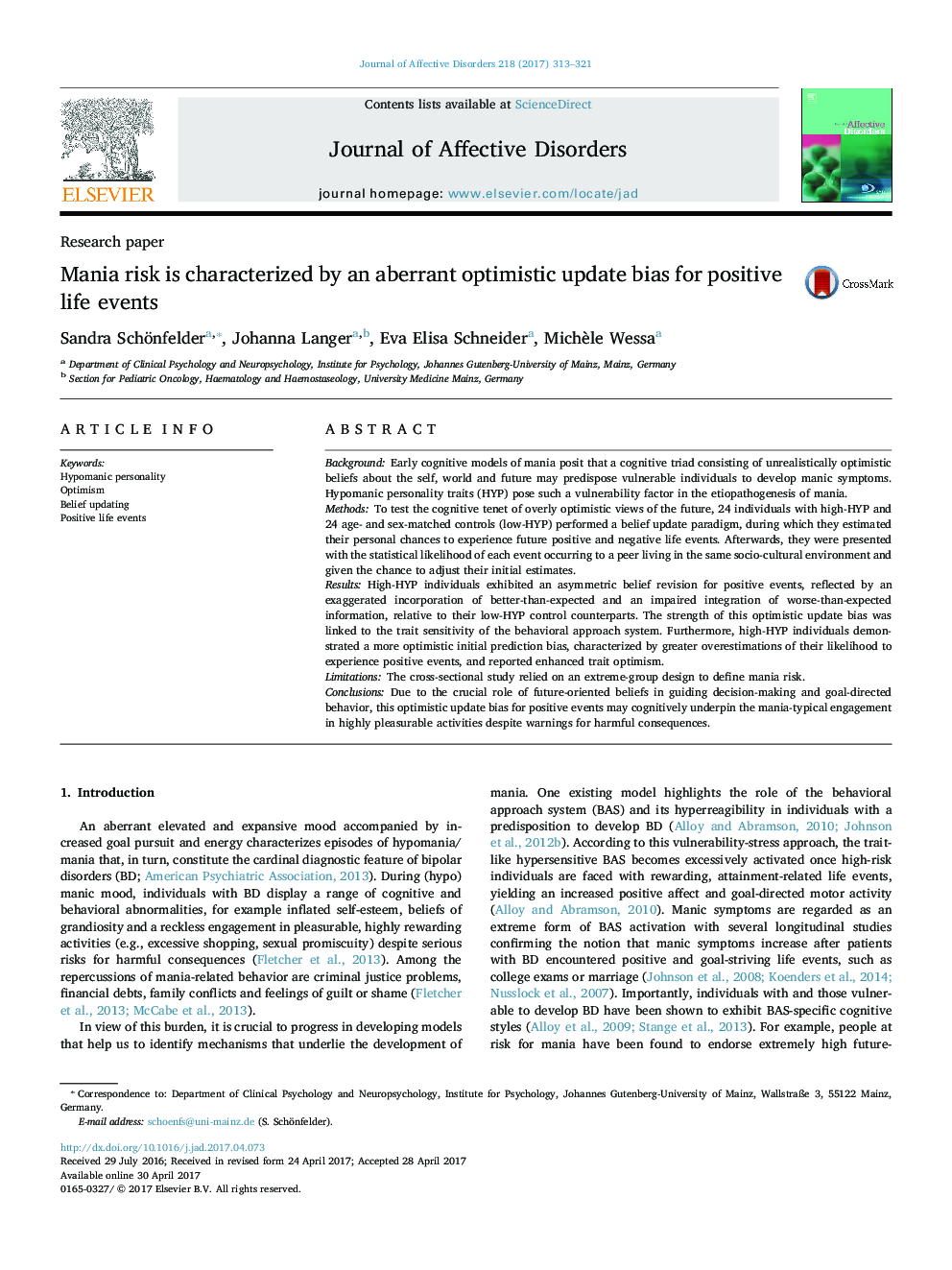| Article ID | Journal | Published Year | Pages | File Type |
|---|---|---|---|---|
| 5721962 | Journal of Affective Disorders | 2017 | 9 Pages |
â¢Mania risk is characterized by an optimistically biased belief revision selectively for future positive events.â¢Belief change is enhanced in individuals with hypomanic personality traits upon receiving good (better than expected) news. In contrast, they tend to discount bad (worse than expected) news.â¢The extent of this asymmetry in belief updating varied with the trait sensitivity of the behavioral activation system.
BackgroundEarly cognitive models of mania posit that a cognitive triad consisting of unrealistically optimistic beliefs about the self, world and future may predispose vulnerable individuals to develop manic symptoms. Hypomanic personality traits (HYP) pose such a vulnerability factor in the etiopathogenesis of mania.MethodsTo test the cognitive tenet of overly optimistic views of the future, 24 individuals with high-HYP and 24 age- and sex-matched controls (low-HYP) performed a belief update paradigm, during which they estimated their personal chances to experience future positive and negative life events. Afterwards, they were presented with the statistical likelihood of each event occurring to a peer living in the same socio-cultural environment and given the chance to adjust their initial estimates.ResultsHigh-HYP individuals exhibited an asymmetric belief revision for positive events, reflected by an exaggerated incorporation of better-than-expected and an impaired integration of worse-than-expected information, relative to their low-HYP control counterparts. The strength of this optimistic update bias was linked to the trait sensitivity of the behavioral approach system. Furthermore, high-HYP individuals demonstrated a more optimistic initial prediction bias, characterized by greater overestimations of their likelihood to experience positive events, and reported enhanced trait optimism.LimitationsThe cross-sectional study relied on an extreme-group design to define mania risk.ConclusionsDue to the crucial role of future-oriented beliefs in guiding decision-making and goal-directed behavior, this optimistic update bias for positive events may cognitively underpin the mania-typical engagement in highly pleasurable activities despite warnings for harmful consequences.
